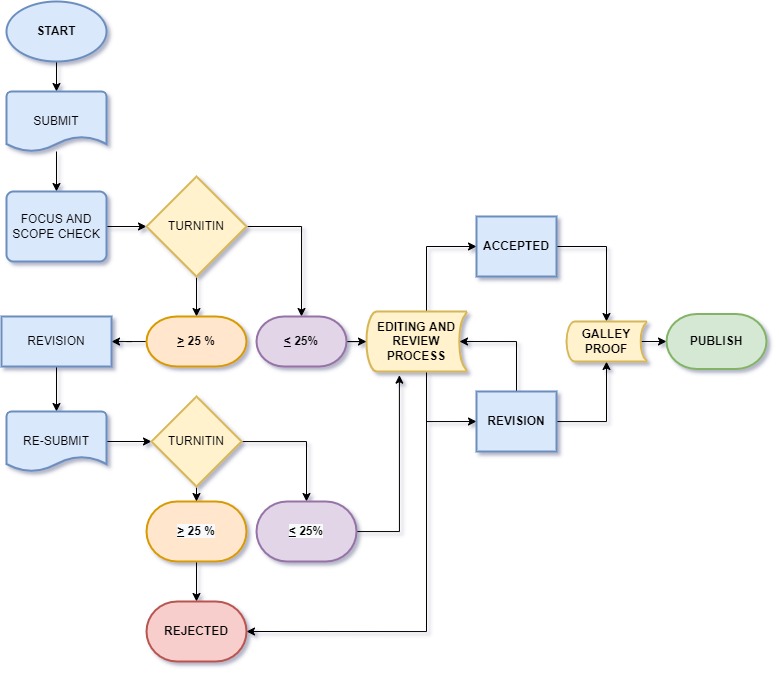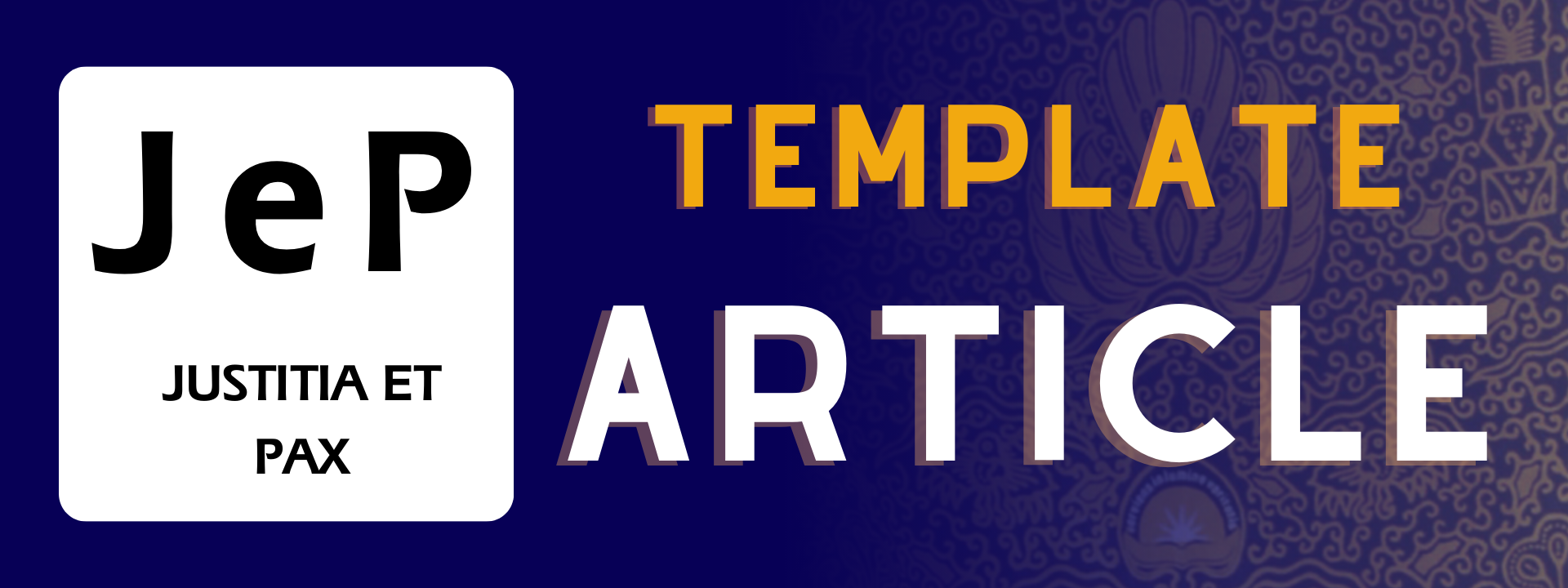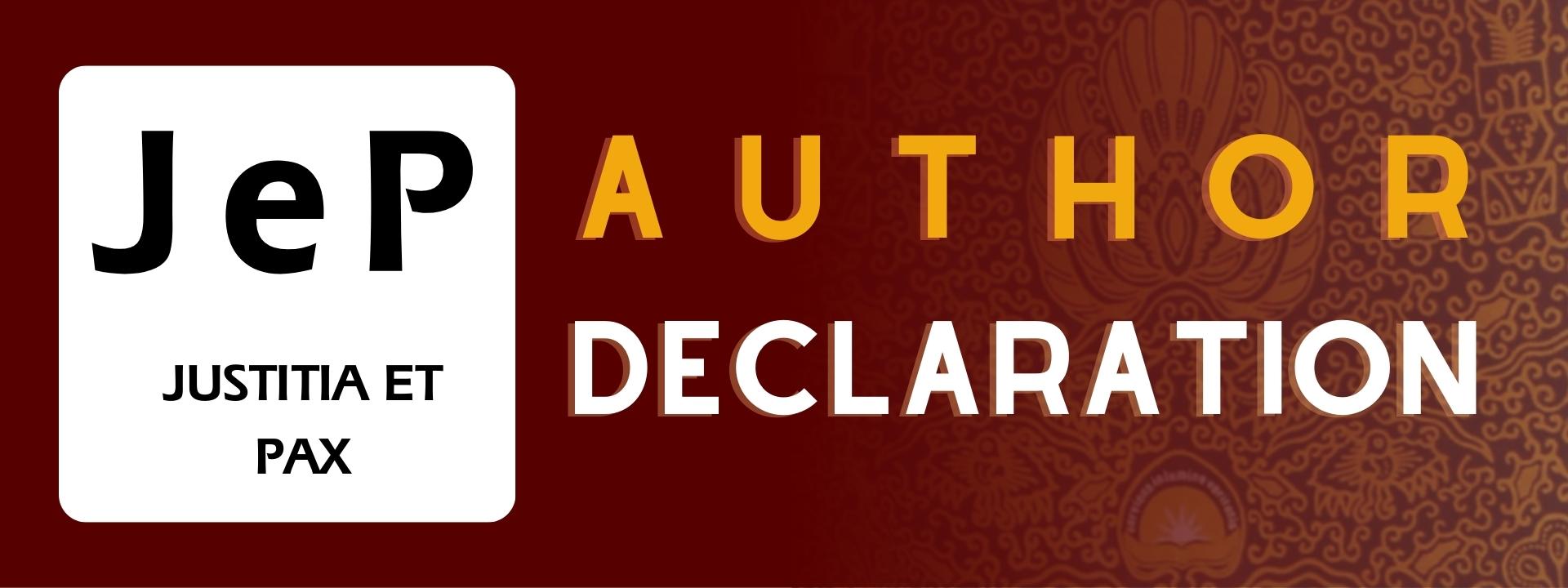Peer Review Process
Justitia Et Pax (JEP) applies a double-blind peer review process to all submitted manuscripts. Those articles will be screened by JEP editors in determining whether they have complied with JEP submission guidelines. Manuscripts will be sent to two reviewers based on their expertise, field specialization and experience. The editors will then determine according to the reviewers’ assessment whether the manuscripts have met JEP’s criteria on publication.
JEP editorial board will review all the articles based on their originality, presentation and the deepness of the discussion. Plagiarism and self-plagiarism are not allowed. JEP will use a software tool to screen the articles to detect any mean of plagiarism. Detection of overlapping and similar text is used in such software, so quotations and appropriate citations are required to be used. It is the duty of the authors to only submit manuscripts that are free from plagiarism or academic malpractices.
There are four possible decisions given by JEP Editorial Board after the review process:
- Accepted. The manuscript is accepted as it is.
- Accepted with Minor Revisions. The author is required to revise the article in certain period.
- Accepted with Major Revisions. The author is required to revise the article in certain period.
- Rejected. Usually the article is rejected on grounds of outside of the journal’s scope and aim, major technical description problems, or lack of clarity of presentation.




















